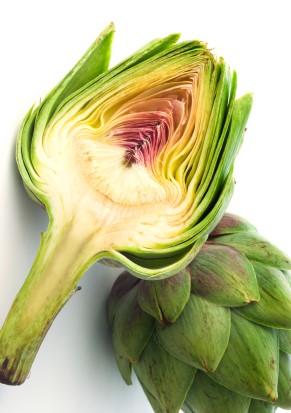Don't avoid the flavonoids
 Two new studies have suggested celery, artichokes and certain herbs may be able to kill human pancreatic cancer cells.
Two new studies have suggested celery, artichokes and certain herbs may be able to kill human pancreatic cancer cells.
Researchers have found that in lab conditions several foods which contain apigenin and luteolin can induce cell death. Elvira de Mejia, a University of Illinois Professor of food chemistry and food toxicology says, “Apigenin alone induced cell death in two aggressive human pancreatic cancer cell lines. But we received the best results when we pre-treated cancer cells with apigenin for 24 hours, then applied the chemotherapeutic drug gemcitabine for 36 hours.”
The studies found the trick may be to use the flavonoids as a pre-treatment instead of applying them and chemotherapeutic drugs simultaneously.
Jodee Johnson, a doctoral student in de Mejia's lab said: “Even though the topic is still controversial, our study indicated that taking antioxidant supplements on the same day as chemotherapeutic drugs may negate the effect of those drugs... that happens because flavonoids can act as antioxidants. One of the ways that chemotherapeutic drugs kill cells is based on their pro-oxidant activity, meaning that flavonoids and chemotherapeutic drugs may compete with each other when they're introduced at the same time.”
Pancreatic cancer is a particularly aggressive form; with few early symptoms it can often be widespread before a sufferer is even aware. Pancreatic cancer is the fourth leading cause of cancer-related deaths.
According to the studies, apigenin inhibits an enzyme called glycogen synthase kinase-3β (GSK-3β), leading to a decrease in the production of anti-apoptotic genes in the pancreatic cancer cells.
Researchers say it would be difficult for a patient to eat the amount of apigenin required to effectively treat pancreatic cancer, but the studies will likely lead to new drugs which contain the appropriate concentrations.
The university team study two related reports; one on the inhibitory effects of fruit compounds, and a second on their ability to enhance chemotherapy treatments.








 Print
Print